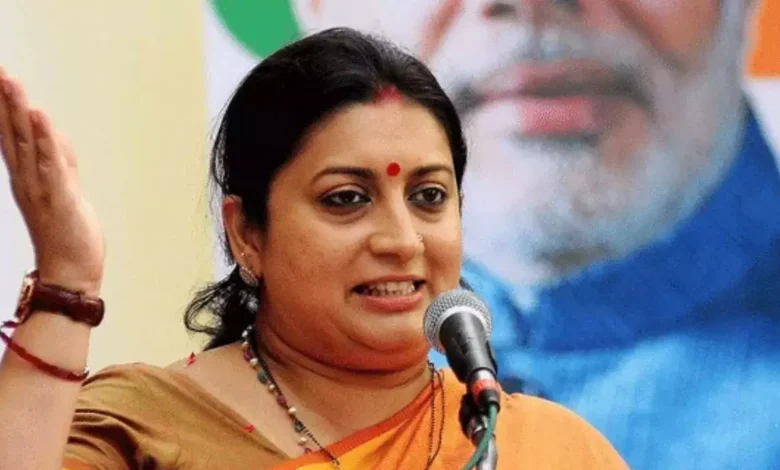Smriti Irani argues menstruation is not a ‘disability,’ rather an excuse to limit equal possibilities
In October, the government produced a draft Menstrual Hygiene Policy, which argued for leave options for menstruation persons in the workplace.

During a Rajya Sabha session on Wednesday, Union Minister of Women and Child Development Smriti Irani argued that menstruation is not a “disability” and is not deserving of a particular policy for “paid leave.” Irani made these comments in response to a query from Rashtriya Janata Dal (RJD) member Manoj Kumar Jha about the country’s menstrual hygiene strategy.
Irani added that menstruation is a normal part of a woman’s life journey and should not be used to deny women equal opportunity.
“As a menstruating woman, menstruation and the menstruation cycle is not a handicap, it’s a natural part of women’s life journey…We should not propose issues where women are denied equal opportunities just because somebody who does not menstruate has a particular viewpoint towards menstruation,” she remarked.
Irani told the Lok Sabha last week, in response to a query from Congress MP Shashi Tharoor, that the government was not considering making paid menstruation leave mandatory in all industries.
“Menstruation is frequently stigmatized”
Irani noted in a written statement to the upper house that a tiny percentage of women and girls suffer from severe dysmenorrhea or comparable problems, which are generally treatable with medicine. She also claimed that is frequently hidden in silence, stigmatized, and subjected to societal taboos that hinder mobility, independence, and access to regular activities.
Furthermore, she emphasized the need of making plans and providing assistance to young girls and menstruation persons who may be unaware of the mental and physical changes that occur throughout their menstrual cycle.
In October, the government produced a draft Menstrual Hygiene Policy, which argued for leave options for menstruation persons in the workplace. The policy emphasized the importance of inclusion, recognizing the workforce’s different requirements and promoting an atmosphere that promotes the well-being and productivity of all persons. It proposed making flexible working arrangements or menstrual support leave available to all employees in order to prevent spreading stigmas or preconceptions about productivity based on menstrual cycles.
Jha also expressed worries about the possible hazards linked with sanitary napkins during the discussion and enquired about the laws controlling these goods. Irani responded by emphasizing the availability of sanitary napkins priced at Rs.1 through the 10,000 Jan Aushadhi Kendras across the country and assuring that there have been no complaints. She further added that the Jal Shakti Ministry set rules for the management of sanitary items in 2014.
The Ministry of Women and Child Development detailed several government initiatives to improve menstruation hygiene, including as awareness campaigns and programs aimed at teenage females aged 10 to 19. The National Health Mission and the Ministry of Drinking Water and Sanitation’s Swachh Bharat Abhiyan, which has created National Guidelines on Menstrual Hygiene Management for Rural Areas, are implementing the projects.
You might also be intersted in – Supreme Court asks Raghav Chadha to extend ‘unconditional apology’ to Rajya Sabha Chair



